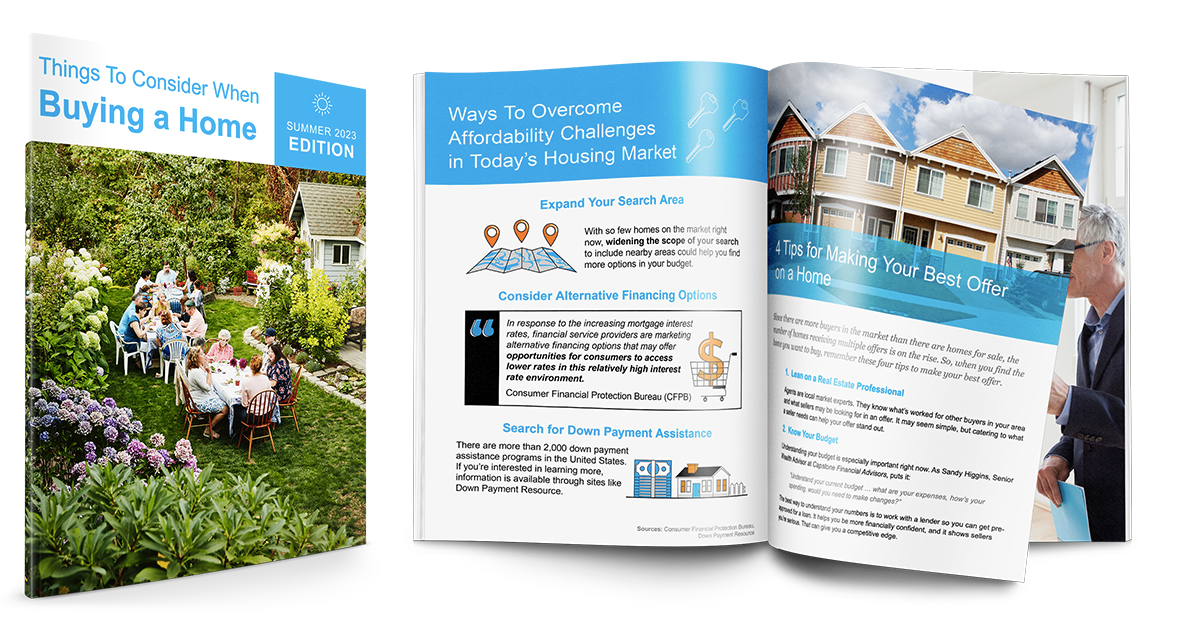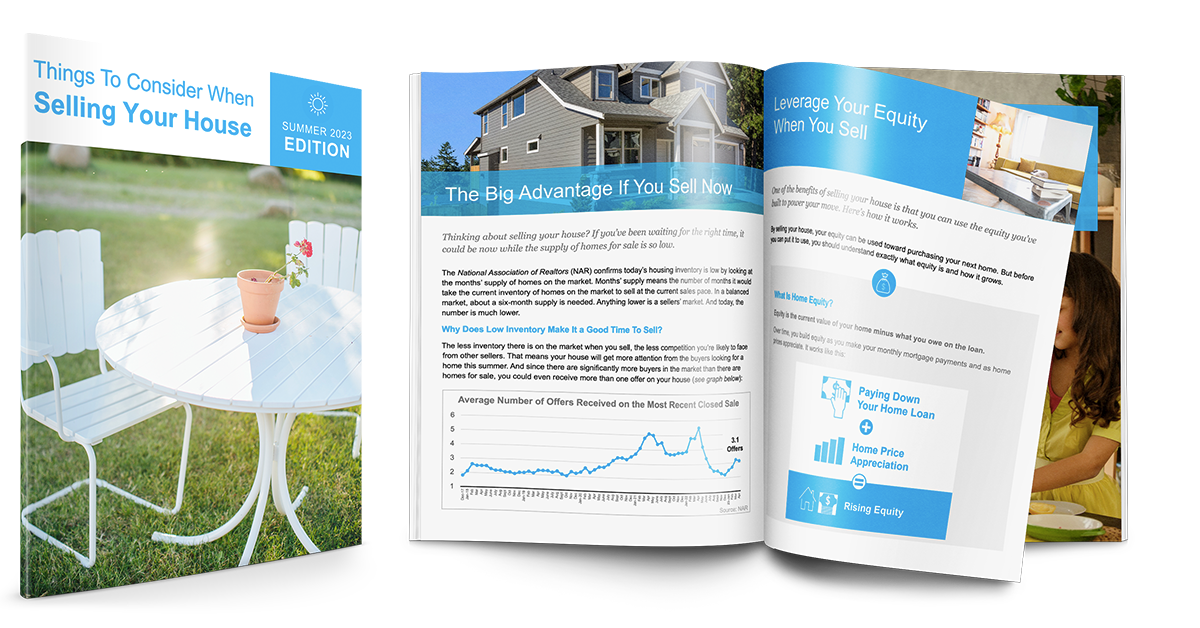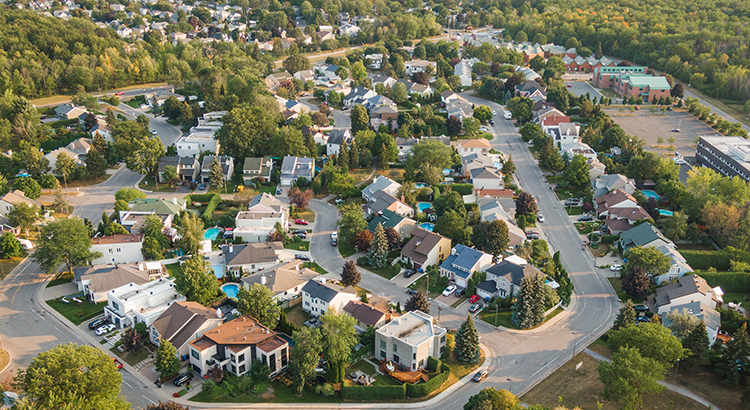Fall for This Autumn Recipe Collection

Fall for This Autumn Recipe Collection As the weather cools, you’re officially entering some of the coziest days of cooking and baking! Whether you’re hosting a gathering for friends or want to treat your family to a special fall-themed breakfast, check out this collection of delicious autumn recipes. Appetizers Infused With Fall Flavors These Cranberry Brie Bites combine crescent dough, brie, […] Michel Smith July 25, 2024 As the weather cools, you’re officially entering some of the coziest days of cooking and baking! Whether you’re hosting a gathering for friends or want to treat your family to a special fall-themed breakfast, check out this collection of delicious autumn recipes. Appetizers Infused With Fall Flavors These Cranberry Brie Bites combine crescent dough, brie, cranberry sauce and fresh rosemary. They’re perfect for large get togethers and take less than 30 minutes to make. For a twist on classic hummus, try this savory Roasted Garlic and Rosemary Pumpkin Hummus. It’s ready in just five minutes and pairs nicely with pita chips or veggies. Breakfasts Featuring Seasonal Favorites Surprise your family with a warm, inviting fall breakfast. This Apple Dutch Baby Pancake, baked in one pan, comes out delightfully puffy and is best served right out of the oven. For a more savory breakfast option, this Healthy Sweet Potato and Bacon Breakfast Casserole is loaded with veggies and protein. Dinners Offering the Ultimate in Comfort It’s time to break out the slow cooker! Let it work its magic with this Set-It-And-Forget-It Pot Roast. Serve with egg noodles or potatoes for a hearty, melt-in-your-mouth dinner. Put a new spin on a classic by skipping the red sauce with this Butternut Squash Lasagna. It’s easy to assemble and is ideal for Sunday dinner or big crowd. Desserts Capturing the Essence of Autumn This classic Best Pumpkin Pie recipe is a must-have for any fall dessert lineup. This version features a rich and creamy filling made with pumpkin puree, sweetened condensed milk and fall spices – all encased in a flaky pie crust. For a decadent treat, this Caramel Apple Poke Cake is made with chopped apples, heavy cream and dulce de leche, and is topped with a fluffy frosting. Along with the changing leaves, crisp air and shorter days, enjoy the comforting ritual of fall cooking and baking. Share the many flavors of autumn with one of these yummy recipes!
Read MoreThings to consider when BUYING a house in Summer 2023

Things to Consider When Buying a Home The process of buying a home can be overwhelming at times, but you don't need to go through it alone. You may be wondering if now is a good time to buy a home ... or if interest rates are projected to rise or fall. I put together a free eGuide for you that will answer many of your questions and likely bring up a few things you haven't even thought about yet. Just click the button below to read it now! Read Your Guide Now
Read MoreThings to consider when SELLING a house Summer 2023

Things to Consider When Selling Your House It's difficult to know when is the best time to sell, or how to get the most money for your house, but you don't need to go through the process alone. You may be wondering if prices are projected to rise or fall... or how much competition you may be facing in the market. I put together a free eGuide for you that will answer many of your questions and likely bring up a few things you haven't even thought about yet. Just click the button below to read it now! Read Your Guide Now
Read MoreDo you believe home prices will continue going up or will they go down!

Think Home Prices Are Going To Fall? Think Again Over the last two years, the rate of home prices appreciated at a dramatic pace. While that led to incredible equity gains for homeowners, it’s also caused some buyers to wonder if home prices will fall. It’s important to know the housing market isn’t a bubble about to burst, and home price growth is supported by strong market fundamentals. To understand why price declines are unlikely, it’s important to explore what caused home prices to rise so much recently, and where experts say home prices are headed. Here’s what you need to know. Home Prices Rose Significantly in Recent Years The graph below uses the latest data from CoreLogic to illustrate the rise in home prices over the past year and a half. The gray bars represent the dramatic increase in the rate of home price appreciation in 2021. The blue bars show home prices are still rising in 2022, but not as quickly: You might be asking: why did home prices climb so much last year? It’s because there were more buyers than there were homes for sale. That imbalance put upward pressure on home prices because demand was extremely high, and supply was record low. Where Experts Say Prices Will Go from Here While housing inventory is increasing and buyer demand is softening today, there’s still a shortage of homes available for sale. That’s why the market is seeing ongoing price appreciation. Mark Fleming, Chief Economist at First American, explains it like this: “. . .we’re still well below normal levels of inventory and that’s why even with the pullback in demand, we still see house prices appreciating. While there is more inventory, it’s still not enough.” As a result, experts are projecting a more moderate rate of home price appreciation this year, which means home prices will continue rising, but at a slower pace. That doesn’t mean prices are going to fall. As Selma Hepp, Deputy Chief Economist at CoreLogic, says: “The current home price growth rate is unsustainable, and higher mortgage rates coupled with more inventory will lead to slower home price growth but unlikely declines in home prices.” In other words, even with higher mortgage rates, moderating buyer demand, and more homes for sale, experts say home price appreciation will slow, but prices won't decline. If you’re planning to buy a home, that means you shouldn’t wait for home prices to drop to make your purchase. Instead, buying today means you can get ahead of future price increases, and benefit from the rise in prices in the form of home equity. Bottom Line Home prices skyrocketed in recent years because there was more demand than supply. As the market shifts, experts aren’t forecasting a drop in prices, just a slowdown in the rate of price growth. To understand what’s happening with home prices in our area, let’s connect today.
Read MoreUsing Your Tax Refund To Achieve Your Homeownership Goals This Year

Using Your Tax Refund To Achieve Your Homeownership Goals This Year If you’re buying or selling a home this year, you’re likely saving up for a variety of expenses. For buyers, that might include things like your down payment and closing costs. And for sellers, you’re probably working on a bit of spring cleaning and maintenance to spruce up your house before you list it. Either way, any money you get back from your taxes can help you achieve your goals. Using a tax refund is a common tactic for buyers and sellers. SmartAsset estimates the average American will receive a $2,897 tax refund this year. The map below provides a more detailed estimate by state: If you’re getting a refund this year, here are a few tips to help with your home purchase or sale this season. How Buyers Can Use Their Tax Refund According to American Financing, there are multiple ways your refund check can help you as a homebuyer. A few include: Growing your down payment fund – If you haven’t started saving for your down payment, let your tax refund kick off the process. And if you have a fund already, the money you get back could put you closer to your goal. Paying for your home inspection – Your home inspection can save you a lot of headaches down the road by helping you determine the condition of the house. As a buyer, you’ll typically be responsible for paying for your inspection, and it’s definitely worth the investment. Saving for closing costs – Closing costs are additional expenses you’ll need to pay once it’s time to close. They average anywhere between 2-5% of the purchase price of your home. This list is a great start, but it isn’t exhaustive of all the costs you may encounter as you set out on your homebuying journey. The best way to prepare is to work with a trusted real estate professional to make sure you understand what’s to come in the process. How Sellers Can Use Their Tax Refund If you own a home and are planning to sell this spring, your tax refund can help you make sure your home is ready to list. Here are a few ways current homeowners can put their tax refund to good use: Making small upgrades – NerdWallet provides a list of great ways to use your tax refund, including tackling small projects or boosting your curb appeal to help your home stand out. Making repairs – If there’s anything in your house that needs to be fixed, American Financing notes that completing repairs is another great use of that money. Buying your next home – Whether you’re selling to move up or downsize, you can use your tax refund to help pay for any costs on the purchase of your next home. Of course, it’s important to talk with your trusted real estate advisor before taking on any projects. They’ll make sure you can focus on areas that’ll help you receive the best possible price when you sell. Bottom Line Funding your home purchase or sale can feel like a daunting task, but it doesn’t have to be. Your tax refund can help you reach your goals. Let’s connect to discuss how you can start on your journey.
Read MoreBuyer's have closing costs above the down payment! What's the bottom line?

Don’t Get Caught Off Guard by Closing Costs As a homebuyer, it’s important to plan and budget for the expenses you’ll encounter when you purchase a home. While most people understand the need to save for a down payment, a recent survey found 41% of homebuyers were surprised by their closing costs. Here’s some information to help you get started so you’re not caught off guard when it’s time to close on your home. What Are Closing Costs? One possible reason some people are surprised by closing costs may be because they don’t know what they are or what they cover. According to U.S. News and World Report: “Closing costs encompass a variety of expenses above your property's purchase price. They include things like lender fees, title insurance, government processing fees, upfront tax payments and homeowners insurance.” In other words, your closing costs are a collection of fees and payments made to a variety of individuals and organizations who are involved with your transaction. According to Freddie Mac, while they can vary by location and situation, closing costs typically include: Government recording costs Appraisal fees Credit report fees Lender origination fees Title services Tax service fees Survey fees Attorney fees Underwriting Fees How Much Will You Need To Budget for Closing Costs? Understanding what closing costs include is important, but knowing what you’ll need to budget to cover them is critical to achieving your homebuying goals. According to the Freddie Mac article mentioned above, the costs to close are typically between 2% and 5% of the total purchase price of your home. With that in mind, here’s how you can get an idea of what you’ll need to cover your closing costs. Let’s say you find a home you want to purchase for the median price of $350,300. Based on the 2-5% Freddie Mac estimate, your closing fees could be between roughly $7,000 and $17,500. Keep in mind, if you’re in the market for a home above or below this price range, your closing costs will be higher or lower. What’s the Best Way To Make Sure You’re Prepared At Closing Time? Freddie Mac provides great advice for homebuyers, saying: “As you start your homebuying journey, take the time to get a sense of all costs involved – from your down payment to closing costs.” The best way to understand what you’ll need at the closing table is to work with a team of trusted real estate professionals. An agent can help connect you with a lender, and together they can provide you with answers to the questions you might have. Bottom Line In today’s real estate market, it’s more important than ever to make sure your budget includes any fees and payments due at closing. Let’s connect so you have the knowledge you need to be confident going into the homebuying process.
Read More-

This Spring Presents Sellers with a Golden Opportunity If you’re thinking of selling your house this year, timing is crucial. After all, you’ll want to balance getting the most out of the sale of your current home and making the best investment when you buy your next one. If that’s the case, you should know – you may be able to get the best of both worlds today. Here are four reasons why this spring may be your golden window of opportunity. 1. The Number of Homes on the Market Is Still Low Today’s limited supply of houses for sale is putting sellers in the driver’s seat. There are far more buyers in the market today than there are homes available. That means purchasers are eagerly waiting for your house. Listing your house now makes it the center of attention. And if you work with a real estate professional to price your house correctly, you can expect it to sell quickly and likely get multiple strong offers this season. 2. Your Equity Is Growing in Record Amounts According to the most recent Homeowner Equity Insight report from CoreLogic, homeowners are sitting on record amounts of equity thanks to recent home price appreciation. The report finds that the average homeowner has gained $55,300 in equity over the past year. That much equity can open doors for you to make a move. If you’ve been holding off on selling because you’re worried about how rising prices will impact your next home search, rest assured your equity can help fuel your move. It may be just what you need to cover a large portion – if not all – of the down payment on your next home. 3. Mortgage Rates Are Increasing While it’s true mortgage rates have already been climbing this year, current mortgage rates are still below what they’ve been in recent decades. In the 2000s, the average mortgage rate was 6.27%. In the 1990s, the average rate was 8.12%. For context, the current average 30-year fixed mortgage rate, according to Freddie Mac, is 3.85%. And while recent global uncertainty caused rates to dip slightly in the near-term, experts project rates will rise in the months ahead. Doug Duncan, Senior Vice President and Chief Economist at Fannie Mae, says: “For homebuyers, we believe that borrowing costs will likely rise with the increase in mortgage rates....” When that happens, it’ll cost you more to purchase your next home. That’s why it’s important to act now if you’re ready to sell. Work with a trusted advisor to kickstart the process so you can take key steps to making your next purchase before rates climb further. 4. Home Prices Are Climbing Too Home prices have been skyrocketing in recent years because of the imbalance of supply and demand. And as long as that imbalance continues, so will the rise in home values. What does that mean for you? If you’re selling so you can move into the home of your dreams or downsize into something that better suits your current needs, you have an opportunity to get ahead of the curve by leveraging your growing equity and purchasing your next home before prices climb higher. And, once you make your purchase, you can find peace of mind in knowing ongoing home price appreciation is growing the value of your new investment. Bottom Line If you want to win when you sell and when you buy, this spring could be your golden opportunity. Let’s connect so you have the insights you need to take advantage of today’s incredible sellers’ market.
Read More "Sellers' Aim For The Middle" Aim For Multiple Offers!!

Why It’s Critical To Price Your House Right When you make a move, you want to sell your house for the highest price possible. That might be why many homeowners are eager to list in today’s sellers’ market. After all, with record-low inventory and high buyer demand, many homes are selling for more than asking price. Data from the National Association of Realtors (NAR) shows 46% of homes are selling above list price today. But even in a market like we have now, working with an agent to set the right asking price is critical, as pricing it too high or too low could have a negative impact on your final sale. Here’s why. Pricing Your House Right Is Crucial Even in a Sellers’ Market The price you set for your house sends a message to potential buyers. Price it too low and you might raise questions about your home’s condition or lead buyers to assume something is wrong with the property. Not to mention, you could leave money on the table, which decreases your future buying power if you undervalue your house. On the other hand, price it too high and you run the risk of deterring buyers. When that happens, you may have to do a price drop to try to re-ignite interest in your house when it sits on the market for a while. But be aware that a price drop can be seen as a red flag for some buyers who will wonder why the price was reduced and what that means about the home. In other words, think of pricing your home as a target. Your goal is to aim directly for the center – not too high, not too low, but right at market value. Pricing your house fairly based on market conditions increases the chance you’ll have more buyers who are interested in purchasing it. That makes it more likely you’ll see a bidding war, too. And when a bidding war happens, you’ll likely get an even higher final sale price. Plus, when homes are priced right, they tend to sell quickly. To get a look into the potential downsides of over or underpricing your house and the perks that come with pricing it at market value, see the chart below: Lean on a Professional’s Expertise To Price Your House Right There are several factors that go into pricing your house and balancing them is the key. That’s why it’s important to lean on an expert real estate advisor when you’re ready to move. A local real estate advisor is knowledgeable about: The value of homes in your neighborhood The current demand for houses in today’s market The condition of your house and how it affects the value A real estate professional will balance these factors to make sure the price of your house makes the best first impression and gives you the greatest return on your investment in the end. Bottom Line Even in a sellers’ market, pricing your house right is critical. Don’t rely on guesswork. Let’s connect to make sure your house is perfectly priced. Why It’s Critical To Price Your House Right When you make a move, you want to sell your house for the highest price possible. That might be why many homeowners are eager to list in today’s sellers’ market. After all, with record-low inventory and high buyer demand, many homes are selling for more than asking price. Data from the National Association of Realtors (NAR) shows 46% of homes are selling above list price today. But even in a market like we have now, working with an agent to set the right asking price is critical, as pricing it too high or too low could have a negative impact on your final sale. Here’s why. Pricing Your House Right Is Crucial Even in a Sellers’ Market The price you set for your house sends a message to potential buyers. Price it too low and you might raise questions about your home’s condition or lead buyers to assume something is wrong with the property. Not to mention, you could leave money on the table, which decreases your future buying power if you undervalue your house. On the other hand, price it too high and you run the risk of deterring buyers. When that happens, you may have to do a price drop to try to re-ignite interest in your house when it sits on the market for a while. But be aware that a price drop can be seen as a red flag for some buyers who will wonder why the price was reduced and what that means about the home. In other words, think of pricing your home as a target. Your goal is to aim directly for the center – not too high, not too low, but right at market value. Pricing your house fairly based on market conditions increases the chance you’ll have more buyers who are interested in purchasing it. That makes it more likely you’ll see a bidding war, too. And when a bidding war happens, you’ll likely get an even higher final sale price. Plus, when homes are priced right, they tend to sell quickly. To get a look into the potential downsides of over or underpricing your house and the perks that come with pricing it at market value, see the chart below: Lean on a Professional’s Expertise To Price Your House Right There are several factors that go into pricing your house and balancing them is the key. That’s why it’s important to lean on an expert real estate advisor when you’re ready to move. A local real estate advisor is knowledgeable about: The value of homes in your neighborhood The current demand for houses in today’s market The condition of your house and how it affects the value A real estate professional will balance these factors to make sure the price of your house makes the best first impression and gives you the greatest return on your investment in the end. Bottom Line Even in a sellers’ market, pricing your house right is critical. Don’t rely on guesswork. Let’s connect to make sure your house is perfectly priced. Why It’s Critical To Price Your House Right When you make a move, you want to sell your house for the highest price possible. That might be why many homeowners are eager to list in today’s sellers’ market. After all, with record-low inventory and high buyer demand, many homes are selling for more than asking price. Data from the National Association of Realtors (NAR) shows 46% of homes are selling above list price today. But even in a market like we have now, working with an agent to set the right asking price is critical, as pricing it too high or too low could have a negative impact on your final sale. Here’s why. Pricing Your House Right Is Crucial Even in a Sellers’ Market The price you set for your house sends a message to potential buyers. Price it too low and you might raise questions about your home’s condition or lead buyers to assume something is wrong with the property. Not to mention, you could leave money on the table, which decreases your future buying power if you undervalue your house. On the other hand, price it too high and you run the risk of deterring buyers. When that happens, you may have to do a price drop to try to re-ignite interest in your house when it sits on the market for a while. But be aware that a price drop can be seen as a red flag for some buyers who will wonder why the price was reduced and what that means about the home. In other words, think of pricing your home as a target. Your goal is to aim directly for the center – not too high, not too low, but right at market value. Pricing your house fairly based on market conditions increases the chance you’ll have more buyers who are interested in purchasing it. That makes it more likely you’ll see a bidding war, too. And when a bidding war happens, you’ll likely get an even higher final sale price. Plus, when homes are priced right, they tend to sell quickly. To get a look into the potential downsides of over or underpricing your house and the perks that come with pricing it at market value, see the chart below: Lean on a Professional’s Expertise To Price Your House Right There are several factors that go into pricing your house and balancing them is the key. That’s why it’s important to lean on an expert real estate advisor when you’re ready to move. A local real estate advisor is knowledgeable about: The value of homes in your neighborhood The current demand for houses in today’s market The condition of your house and how it affects the value A real estate professional will balance these factors to make sure the price of your house makes the best first impression and gives you the greatest return on your investment in the end. Bottom Line Even in a sellers’ market, pricing your house right is critical. Don’t rely on guesswork. Let’s connect to make sure your house is perfectly priced. Why It’s Critical To Price Your House Right When you make a move, you want to sell your house for the highest price possible. That might be why many homeowners are eager to list in today’s sellers’ market. After all, with record-low inventory and high buyer demand, many homes are selling for more than asking price. Data from the National Association of Realtors (NAR) shows 46% of homes are selling above list price today. But even in a market like we have now, working with an agent to set the right asking price is critical, as pricing it too high or too low could have a negative impact on your final sale. Here’s why. Pricing Your House Right Is Crucial Even in a Sellers’ Market The price you set for your house sends a message to potential buyers. Price it too low and you might raise questions about your home’s condition or lead buyers to assume something is wrong with the property. Not to mention, you could leave money on the table, which decreases your future buying power if you undervalue your house. On the other hand, price it too high and you run the risk of deterring buyers. When that happens, you may have to do a price drop to try to re-ignite interest in your house when it sits on the market for a while. But be aware that a price drop can be seen as a red flag for some buyers who will wonder why the price was reduced and what that means about the home. In other words, think of pricing your home as a target. Your goal is to aim directly for the center – not too high, not too low, but right at market value. Pricing your house fairly based on market conditions increases the chance you’ll have more buyers who are interested in purchasing it. That makes it more likely you’ll see a bidding war, too. And when a bidding war happens, you’ll likely get an even higher final sale price. Plus, when homes are priced right, they tend to sell quickly. To get a look into the potential downsides of over or underpricing your house and the perks that come with pricing it at market value, see the chart below: Lean on a Professional’s Expertise To Price Your House Right There are several factors that go into pricing your house and balancing them is the key. That’s why it’s important to lean on an expert real estate advisor when you’re ready to move. A local real estate advisor is knowledgeable about: The value of homes in your neighborhood The current demand for houses in today’s market The condition of your house and how it affects the value A real estate professional will balance these factors to make sure the price of your house makes the best first impression and gives you the greatest return on your investment in the end. Bottom Line Even in a sellers’ market, pricing your house right is critical. Don’t rely on guesswork. Let’s connect to make sure your house is perfectly priced. Why It’s Critical To Price Your House Right When you make a move, you want to sell your house for the highest price possible. That might be why many homeowners are eager to list in today’s sellers’ market. After all, with record-low inventory and high buyer demand, many homes are selling for more than asking price. Data from the National Association of Realtors (NAR) shows 46% of homes are selling above list price today. But even in a market like we have now, working with an agent to set the right asking price is critical, as pricing it too high or too low could have a negative impact on your final sale. Here’s why. Pricing Your House Right Is Crucial Even in a Sellers’ Market The price you set for your house sends a message to potential buyers. Price it too low and you might raise questions about your home’s condition or lead buyers to assume something is wrong with the property. Not to mention, you could leave money on the table, which decreases your future buying power if you undervalue your house. On the other hand, price it too high and you run the risk of deterring buyers. When that happens, you may have to do a price drop to try to re-ignite interest in your house when it sits on the market for a while. But be aware that a price drop can be seen as a red flag for some buyers who will wonder why the price was reduced and what that means about the home. In other words, think of pricing your home as a target. Your goal is to aim directly for the center – not too high, not too low, but right at market value. Pricing your house fairly based on market conditions increases the chance you’ll have more buyers who are interested in purchasing it. That makes it more likely you’ll see a bidding war, too. And when a bidding war happens, you’ll likely get an even higher final sale price. Plus, when homes are priced right, they tend to sell quickly. To get a look into the potential downsides of over or underpricing your house and the perks that come with pricing it at market value, see the chart below: Lean on a Professional’s Expertise To Price Your House Right There are several factors that go into pricing your house and balancing them is the key. That’s why it’s important to lean on an expert real estate advisor when you’re ready to move. A local real estate advisor is knowledgeable about: The value of homes in your neighborhood The current demand for houses in today’s market The condition of your house and how it affects the value A real estate professional will balance these factors to make sure the price of your house makes the best first impression and gives you the greatest return on your investment in the end. Bottom Line Even in a sellers’ market, pricing your house right is critical. Don’t rely on guesswork. Let’s connect to make sure your house is perfectly priced. Why It’s Critical To Price Your House Right When you make a move, you want to sell your house for the highest price possible. That might be why many homeowners are eager to list in today’s sellers’ market. After all, with record-low inventory and high buyer demand, many homes are selling for more than asking price. Data from the National Association of Realtors (NAR) shows 46% of homes are selling above list price today. But even in a market like we have now, working with an agent to set the right asking price is critical, as pricing it too high or too low could have a negative impact on your final sale. Here’s why. Pricing Your House Right Is Crucial Even in a Sellers’ Market The price you set for your house sends a message to potential buyers. Price it too low and you might raise questions about your home’s condition or lead buyers to assume something is wrong with the property. Not to mention, you could leave money on the table, which decreases your future buying power if you undervalue your house. On the other hand, price it too high and you run the risk of deterring buyers. When that happens, you may have to do a price drop to try to re-ignite interest in your house when it sits on the market for a while. But be aware that a price drop can be seen as a red flag for some buyers who will wonder why the price was reduced and what that means about the home. In other words, think of pricing your home as a target. Your goal is to aim directly for the center – not too high, not too low, but right at market value. Pricing your house fairly based on market conditions increases the chance you’ll have more buyers who are interested in purchasing it. That makes it more likely you’ll see a bidding war, too. And when a bidding war happens, you’ll likely get an even higher final sale price. Plus, when homes are priced right, they tend to sell quickly. To get a look into the potential downsides of over or underpricing your house and the perks that come with pricing it at market value, see the chart below: Lean on a Professional’s Expertise To Price Your House Right There are several factors that go into pricing your house and balancing them is the key. That’s why it’s important to lean on an expert real estate advisor when you’re ready to move. A local real estate advisor is knowledgeable about: The value of homes in your neighborhood The current demand for houses in today’s market The condition of your house and how it affects the value A real estate professional will balance these factors to make sure the price of your house makes the best first impression and gives you the greatest return on your investment in the end. Bottom Line Even in a sellers’ market, pricing your house right is critical. Don’t rely on guesswork. Let’s connect to make sure your house is perfectly priced.
Read MoreWhat Every Seller Needs To Know About Renovating This Year

What Every Seller Needs To Know About Renovating This Year If you’re planning to sell this year, you’re probably thinking about what you’ll need to do to get your house ready to appeal to the most buyers. It’s crucial to work with a trusted real estate professional who knows your local market to get your home ready to sell. But there are a few things you should consider when deciding what to renovate and update before listing this season. Here are three things to keep top of mind as you’re making your list of projects to tackle this year. 1. The Number of Homes for Sale Is Very Low Housing inventory sits far below what is normally considered a balanced market. In fact, according to the National Association of Realtors (NAR), the latest data indicates inventory is hitting an all-time low. Because there’s such a limited supply of homes available for sale, you’re in a unique position when you sell your house to benefit from multiple offers and a quick process. But you want to do so while buyers are still scooping homes up as fast as they’re being listed. Spending time and money on renovations before you sell could mean you’ll miss your key window of opportunity. Of course, certain repairs may be important or even necessary. The best way to determine where to spend your time – and your money – is to work with a real estate advisor to confirm which improvements are truly needed and which ones aren’t likely to be deal-breakers for buyers. 2. Buyers May Be Willing To Take on Projects When They Purchase Your House Today, many buyers are more willing to take on home improvement projects themselves to get the house they’re after, even if it means putting in a little extra work. A recent survey from Freddie Mac finds that: “. . . nearly two-in-five potential homebuyers would consider purchasing a home requiring renovations.” If more buyers are willing to tackle repairs on their own, it may be wise to let the future homeowners remodel the bathroom or the kitchen to make design decisions that are best for their specific taste and lifestyle. Depending on the structural condition of your house, your efforts may be better spent working on small cosmetic updates, like refreshing some paint and power washing the exterior to make sure the home stands out. Instead of over-investing in upgrades, the buyer may change anyway, work with a real estate professional to determine the key projects to tackle that will give you the greatest return on your investment. 3. Your Agent Will Help You Spotlight the Upgrades You’ve Made Over the past year, many people made a significant number of updates to their homes. The most recent State of Home Spending report finds: “Home improvement spending rose 25% year-over-year to $10,341. Homeowners who invested in home improvement did an average of 3.7 projects, up from 2.7 in 2020, . . .” With more homeowners taking on more projects in the past 12 months, there’s a good chance you’ve already made updates to your home that could appeal to buyers. If that’s the case, your real estate advisor will find ways to highlight those upgrades in your listing. The same is true for any projects you invest in moving forward. No matter what, before you renovate, contact a local real estate professional for expert advice on what work needs to be done and how to make it as appealing as possible to future buyers. Every home is different, so a conversation with your agent is mission-critical to make sure you make the right moves when selling this season. Bottom Line In a sellers’ market like today’s, it’s important to spend your time and money wisely when you’re getting ready to move. Let’s connect today so you can find out where to target your efforts before you list.
Read More
Categories
Recent Posts









